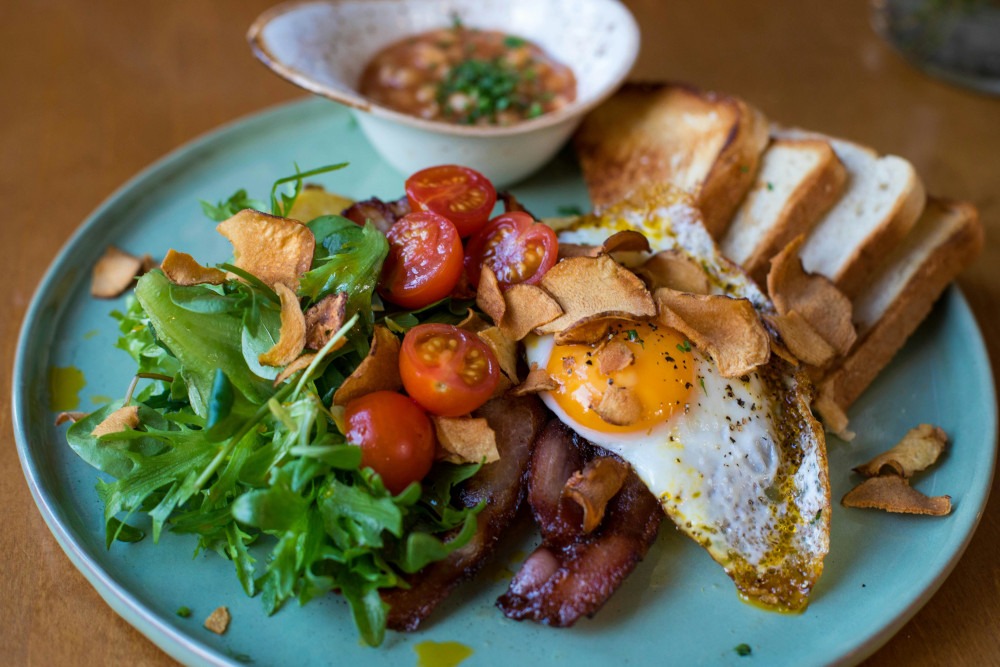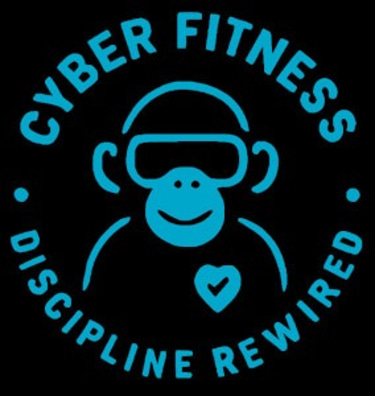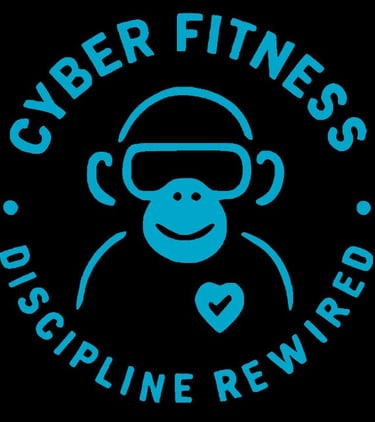Diet and macros.
Practical, honest strategies for better eating habits that fit real life. Diet and macros advice to help adults, teens and families eat well sustainably.


Eating better isn’t a sexy transformation montage. It’s not Hollywood. It’s Tuesday night, staring into the fridge like it personally wronged you, wondering why there’s nothing ready except half a packet of cheese and a tomato that looks like it’s seen things. It’s waking up determined to “eat clean” and then falling face-first into a family-size bag of chips by 3pm because work, life, kids, hormones, stress, you name it. But you don’t need perfection. You just need a system that fits the chaos of real life. One that works whether you’re a parent, a teenager, a bit overweight and trying to get started, a cardio queen burning calories like a furnace, or someone who just wants food to stop being a constant mental battle.
Food habits aren’t built on motivation; they’re built on repeatable structure. And before anyone rolls their eyes - no, that doesn’t mean living off chicken and broccoli or counting every gram like you’re preparing for Mr Olympia. Some people love that stuff. The rest of us are just trying not to eat half the Cadburys factory when the hunger hits. There are strategies that work for literally everyone, and none of them require you to be a saint. They just require you to stop winging it.
This isn’t new wisdom either. We’ve known for ages that willpower alone isn’t enough. The Harvard School of Public Health notes that dietary habits improve dramatically when people use basic systems like meal planning and simple tracking instead of guessing. That’s it. Not a cult. Not a magic detox. Just systems. The same thing that works in cyber security, fitness, and mindset - structure beats chaos.
And let’s talk about chaos, because families are full of it. Trying to feed a household is like running a small restaurant where none of the customers agree on anything. Teens want snacks and enough calories to fuel a rocket launch. Adults want something quick that won’t ruin their progress. The heavy exercisers need enough protein to rebuild all the muscle they’re murdering in the gym. And the folks with extra body fat? They need something sustainable that doesn’t make them feel like they’re starting from behind. Every group needs different tactics, but the philosophy underneath stays the same: reduce friction, use structure, and don’t trust your brain when you’re hungry - it lies.
One of the easiest ways to do this is macro awareness. Not obsession - awareness. You don’t need to weigh every leaf of lettuce; you just need enough knowledge to make decisions that don’t derail your day. That’s where tools come in. The Cyber Fitness – Discipline Rewired (CFDR) macro calculator and daily tracker (exists specifically for this moment. Enter your age, height, gender, weight and activity level, and it gives you the calories and macros your body actually needs instead of whatever number you hallucinated from a TikTok influencer. You could choose to pair that with an app such as Cronometer: Calorie Counter, which is accurate, detailed, free, and easy to figure out the macro values of each meal. You can see what goes where. You can plan instead of panic. You can be a functioning adult with a fork.
But let’s zoom in and talk tactics, because each group needs their own plan of attack.
Adults first, because we’re the ones overthinking everything. The biggest mistake adults make is “I’ll just eat healthy today” without having anything healthy ready. That’s a bit like telling yourself you’ll run a marathon without owning shoes. Adults need prep - bare minimum prep. Not meal-prep-insta-boxes-with-perfectly-stacked-chicken kind of prep. I mean: cook double dinner so you have leftovers, pre-chop vegetables so they stare at you guiltily when you reach for junk, keep emergency protein options in the fridge like Greek yoghurt, boiled eggs, or shredded rotisserie chicken. The British Nutrition Foundation backs this approach, emphasising that “visible, convenient healthy options significantly reduce poor food choices.” Translation: if the good stuff is easy and the crap is slightly annoying to access, you’ll eat better by default.
Now let’s talk about heavy exercisers. You mad bastards burn fuel like a jet engine. Your problem isn’t overeating; it’s under-eating the right things. You smash a workout, feel heroic, then eat 1000 calories all day and wonder why you feel like a dying plant. You need protein, carbs, hydration, and timing. People who train hard should track macros at least loosely, because performance dies without enough nutrients. “Roar” by Dr. Stacy Sims highlights how athletes underfuel all the time, especially women, and how fixing that changes everything. If you’re training more than four times a week, macro awareness isn’t optional - it’s survival. Use a macro calculator. Use literal common sense. Fuel your training, or the training will eat you alive.
Now teenagers. God help us all. Teens are growing, emotional, chaotic, stressed, hungry at all the wrong times, and allergic to vegetables unless they’re buried under cheese. They don’t need strict diets — they need structure disguised as freedom. Teens respond well to portion guidance rather than calorie maths: a palm of protein, a fist of carbs, a thumb of fats, and whatever veggies they can get down without filing a complaint with child services. And because they graze like small, moody horses, snacks are actually a weapon if you use them right. Dietitians Australia points out that low blood sugar tanks mood, concentration and energy, and that smart, satisfying snacks help stabilise all of it - which is exactly what you want in a house with teenagers who can flip from “fine” to “existential crisis” in five seconds. So stock the good stuff: yoghurt, fruit, toasties, popcorn, protein bars, nuts, actual food. Feed them before the mood drops, not after.
Now the slightly chunkier folks - said with love, because half of us have been there or are there right now. The biggest issue overweight beginners face is overwhelm. Dieting feels like punishment for existing. Forget the diet. Forget the guilt. Just build one small habit a week. Less snacking at night. Water before meals. Walk after dinner. Increase protein. Track three days per week instead of seven. Read “Why We Get Fat” by Gary Taubes which highlights the hormonal model of overeating, not the moral one. You’re not weak. You’re fighting biology and environment. Use structure and slowly shift the odds in your favour. And don’t cut calories to hell - The Mayo Clinic notes that extreme low-calorie diets backfire every time. Slow. Steady. Sustainable. That’s how fat loss actually sticks.
The whole family, no matter the demographic, benefits massively from habit stacking. Pair something you already do with a better eating behaviour. Make coffee? Drink water too. Cook dinner? Chop tomorrow’s veggies. Packing school lunches? Pack your own snack. You function better when decisions aren’t last-minute. So set the stage. Pre-load success.
Alternatives and handy solutions need to be simple because life is busy:
Buy frozen veg - they’re nutritious, quick, and don’t die in the drawer like their fresh cousins.
Keep protein powder on standby - it’s not bodybuilding nonsense; it’s fast and high-protein.
Get a slow cooker - dump food in, walk away, come back to dinner.
Use “base meals” - foods you rotate daily with tiny variations, like burrito bowls, stir fries, wraps, soups, pasta with lean protein.
Batch-cook carbs like rice or potatoes - future you will cry tears of gratitude.
Make “grab boxes”: boiled eggs, berries, protein snacks, cut veg, hummus, leftovers, Greek yoghurt, cooked chicken.
And then there’s macro counting. People hear “macros” and think it means becoming a human spreadsheet. It doesn’t. Macro counting is simply knowing what’s in your food so you can hit your goals without guessing. Even if you only use it for a few weeks, it changes everything - you learn portion sizes, what fills you up, what doesn’t, and how much you actually need. The CFDR macro calculator helps. Any macro counter / food tracker can help (don’t pay though, there are free ones!). And if you’re allergic to numbers, go portion-based. Use the macro counters to get a handle on things, get an idea of rough sizes, and what’s what – palm-sized, fist-sized, thumb-sized etc. Then ditch the app and go freestyle. That’s still macro structure - just without the maths.
Families should also use “food defaults.” These are the go-to meals that prevent frantic, hangry chaos. Tacos. Stir fry. Pasta with protein. Omelettes. Toast with toppings like eggs, tuna, cottage cheese, or peanut butter. Burrito bowls. Simple meals built around whole foods, healthy fats, carbs, and protein. Not restrictive. Not miserable. Just balanced.
Let’s also address the psychological side, because food is emotional whether we admit it or not. “Mindless Eating” by Brian Wansink describes how unconscious behaviour triggers overeating more than anything else - big plates, snacking while scrolling, eating out of boredom, finishing kids’ leftovers. Awareness helps you break those traps. And this isn’t about policing yourself; it’s about understanding your patterns so you can rewire them.
And speaking of rewiring, this is the whole philosophy behind Discipline Rewired. You don’t need a different life - you need a different system. One that prioritises progress, not perfection. One that helps your kids form lifelong habits. One that helps the overweight folks get momentum. One that fuels the fit crowd without letting them burn out. One that gives adults the mental bandwidth to actually stay consistent. Food shouldn’t feel like a daily fight. It should feel like something you’ve built into your life in sustainable, almost boring ways that quietly transform everything.
At the end of the day, better eating habits don’t come from a dramatic overhaul. They come from a thousand tiny decisions made slightly easier. They come from planning, prepping, tracking, and being brutally honest with yourself without being a dick to yourself. It’s about teaching your family that food is fuel, connection, energy, recovery, and self-respect - not punishment and not a battlefield. It’s about shifting the tone of health away from shame and into strategy.
And when in doubt, remember this: you don’t rise to the level of your goals. You fall to the level of your systems. Build better systems around food and you build a better life, one plate at a time. That’s not a slogan. It’s reality.
Where to start?
Start small. One habit, one routine, one tiny win. Plug your details into the macro calculator, track a single day in Cronometer, prep one meal that future-you will thank you for. Stack that with a walk, a bit more water, and a fridge that actually supports the life you’re trying to build. This isn’t a diet. It’s you rewiring your discipline, one plate at a time. Begin today - your body, your brain and your family will feel the difference long before it feels like work.


